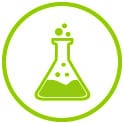Click now to hear from Jordan Elder, RCA’s Director of Regulatory Affairs, regarding the latest info on Quality System Regulation (QSR) regulations and FDA harmonization efforts:
When developing a quality management system (QMS), it is important to understand any pitfalls that could arise as well as understand what each notified body looks for in a compliant quality system. Recently, one of the US Food and Drug Administration’s (FDA’s) top medical device regulators said harmonizing the agency’s current Quality System Regulation with the International Organization for Standardization (ISO) 13485:2016 is a “high priority”.
Click to learn about the latest updates to the QMSR File Rule.
QMS Harmonization
Currently, the US Food and Drug Administration (FDA) does not enforce ISO’s 13458:2016 standards set in place for Quality Management Systems, but uses its own Quality System Regulation (QSR) guidelines that do include parts of the 13458 standards. But this is set to change for the better. The FDA has recently proposed plans to align its quality system requirements with ISO 13485:2016, creating a new regulation dubbed the Quality Management System Regulation (QMRS). This shift came four years after the agency first proposed the regulatory alignment.
Quality Management System
Manufacturers who already conform to the ISO standard should not see much change and this move should help create efficiencies for them in the long run. The FDA proposed the alinement by incorporating the 2016 edition of the international standard specific for medical device quality management systems ISO13485. Through this rulemaking, the FDA is also proposing additional requirements that help connect and align ISO13485 with existing requirements in the FD&C Act and its implementing regulations. This will include making conforming edits to 21 CFR Part 4 to clarify the device CGMP requirements for combination products as well.
Risk Management
The most noticeable difference between the current quality systems regulation and ISO13485 is that the risk management requirements are integrated throughout the aspects of the quality management system in ISO13485. This differs from 21 CFR 820, in that the only risk-specific requirement in the QS regulation is listed in §820.30(g), as it relates to risk analysis as a part of design validation.
These revisions are intended to supplant the existing ISO13485 requirements with the specifications of an international consensus standard for medical device manufacturers. The revisions are expected to reduce device manufacturers’ burdens, specifically aspects of compliance and recordkeeping through the harmonization of domestic and international requirements.
ISO Standard
With a membership of 168 national standards bodies, ISO is an independent, non-governmental international organization that brings together experts from around the world to share knowledge and develop voluntary, consensus-based, market-relevant International Standards that support innovation and provide solutions to global challenges.
Although the standers set by ISO are recognized by organizations around the world, ISO compliance itself isn’t a legal requirement, the standards naturally align with different regulations across the industries. ISO compliance means using ISO standards as guidelines for aligning your policies, processes, and operating procedures to adhere to the standard.
ISO 13485:2016
ISO 13485:2016 specifies requirements for medical device quality management systems where an organization needs to demonstrate its ability to consistently meet customer and applicable regulatory requirements. This includes one or more stages of the product life cycle, including:
- Design controls and development
- Production and manufacturing
- Storage and distribution
- Installation
- Servicing a medical device
- Technical support
ISO13485:2016 can also be used by suppliers or external parties that provide products, including quality management system-related services to such organizations.
To begin the Regulatory Compliance Associates® scoping process today, please enter your information in the blue form below and click the submit button at the bottom of the webpage.



